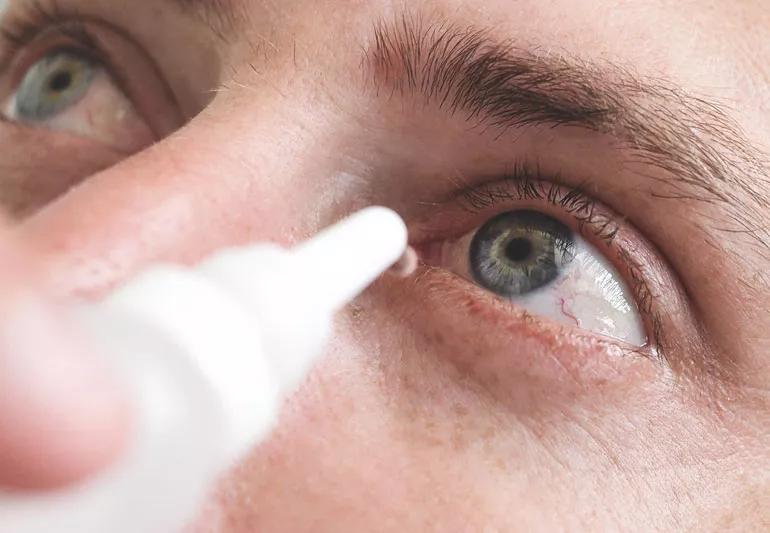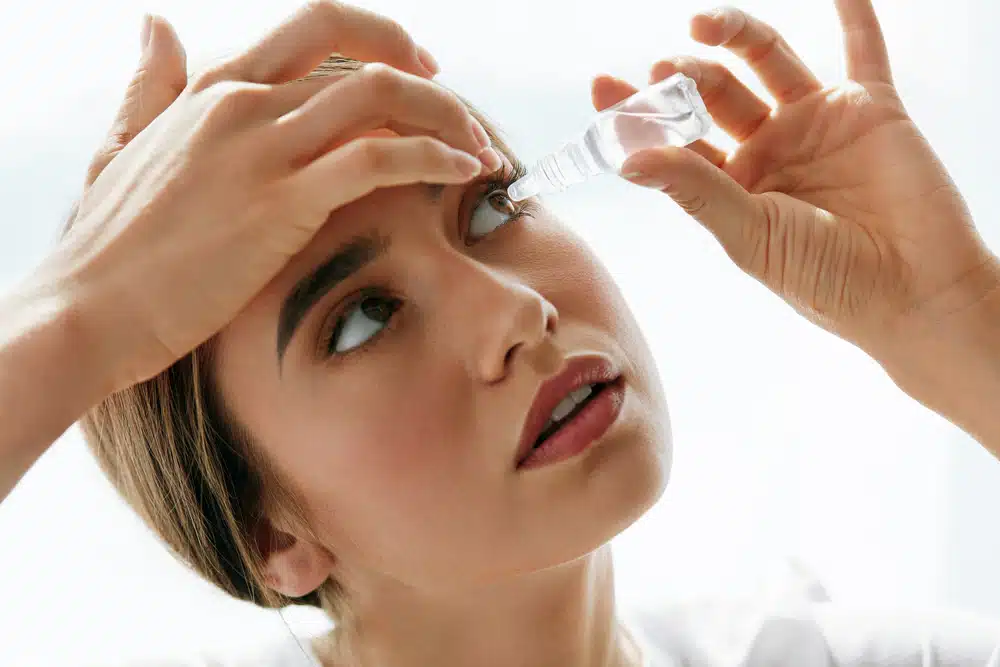Taking care of your eyes is essential for overall health. Cleaning them properly can prevent irritation and infections.
Many people don’t know the best way to clean their eyes. Whether it’s due to dust, allergies, or contact lenses, our eyes can often feel uncomfortable. By learning the right techniques, you can keep your eyes healthy and comfortable. This guide will teach you how to clean your eyes safely and effectively.
From simple rinses to using eye drops, you’ll discover easy steps to maintain clear and healthy vision. Let’s dive into the best methods for keeping your eyes fresh and clean.
Importance Of Eye Hygiene
Maintaining proper eye hygiene is crucial for overall eye health. Our eyes are sensitive and delicate. They are exposed to pollutants, dust, and bacteria daily. Good eye hygiene helps prevent common eye issues and keeps your vision sharp.
Preventing Infections
Cleaning your eyes regularly reduces the risk of infections. Eye infections can cause discomfort and vision problems. Common eye infections include conjunctivitis and styes. These are often caused by bacteria and viruses. Regular cleaning removes harmful particles. This keeps your eyes healthy and infection-free.
Enhancing Vision
Eye hygiene can improve your vision. Dirt and debris can cloud your vision. Removing these particles helps you see clearly. Clean eyes can also reduce strain. Less strain means better focus and less discomfort. Regularly cleaning your eyes supports good eye health and clear vision.

Credit: health.clevelandclinic.org
Daily Eye Care Routine
Keeping your eyes clean is essential for maintaining eye health. A simple daily eye care routine can prevent irritation, dryness, and infections. Follow these easy steps to care for your eyes every day.
Morning Rituals
Start your day with clean eyes to remove any overnight buildup. Here’s how:
- Wash your hands with soap and water.
- Use a clean, damp cloth to gently wipe your eyelids.
- Rinse your eyes with cool water to refresh them.
- Apply a warm compress if your eyes feel dry or gritty.
These steps help to remove any debris and refresh your eyes.
Night-time Tips
End your day with a gentle eye cleaning routine. This will ensure your eyes are ready for a good night’s rest:
- Remove any makeup with a gentle eye makeup remover.
- Wash your face and eyelids with a mild cleanser.
- Rinse your eyes with lukewarm water to remove any soap residue.
- Apply a cold compress to soothe your eyes if needed.
Following these tips helps to prevent eye infections and keeps your eyes healthy.
Using Eye Drops
Eye drops can be an essential part of keeping your eyes clean. They help remove dust, relieve dryness, and reduce redness. Knowing how to use them properly is crucial. This section will guide you through choosing the right drops and the proper application technique.
Choosing The Right Drops
Not all eye drops are the same. Some are for dryness, while others treat redness. Read the labels carefully. Understand what your eyes need before making a purchase. Consult a doctor if you’re unsure. They can recommend the best option for your condition. Always check for expiration dates. Using expired drops can harm your eyes.
Proper Application Technique
Wash your hands thoroughly before touching your eyes. Tilt your head back slightly. Use your non-dominant hand to pull down your lower eyelid. Hold the eye drop bottle in your dominant hand. Squeeze one drop into the space between your lower eyelid and eyeball. Avoid touching your eye with the bottle tip. Close your eyes for a minute. This helps the drops spread evenly. Repeat if needed, but follow the recommended dosage.
Natural Remedies
Keeping your eyes clean is crucial. Natural remedies can help. They are gentle and effective. Below are some easy methods to try.
Herbal Solutions
Certain herbs can benefit your eyes. They offer soothing and cleansing properties. Consider these popular choices:
- Chamomile Tea: Brew a cup and let it cool. Use a clean cloth to dab on your eyes. Chamomile reduces inflammation and soothes irritation.
- Green Tea: Similar to chamomile, green tea can help. Its antioxidants promote eye health. Just brew, cool, and apply.
- Eyebright: This herb has a long history in eye care. Make an eyewash with eyebright tea. It can help reduce redness and discomfort.
Warm Compress Benefits
A warm compress can do wonders. It helps increase blood flow. This method can unclog oil glands and relieve dry eyes.
- Take a clean cloth and soak in warm water.
- Wring out excess water.
- Place it over closed eyes for 5-10 minutes.
- Repeat this process twice a day.
Warm compresses can also help with eye infections. They reduce swelling and help discharge any pus. Always use a clean cloth to avoid contamination.
Cleaning Contact Lenses
Keeping your contact lenses clean is essential for maintaining healthy eyes. It prevents infections and ensures you see clearly. Follow these steps to clean your contact lenses safely.
Daily Cleaning Steps
Clean your contact lenses daily to avoid eye infections. Follow these steps:
- Wash your hands with soap and water. Dry them with a lint-free towel.
- Remove one lens and place it in your palm.
- Add a few drops of lens solution to the lens.
- Gently rub the lens with your fingertip for about 20 seconds. This helps remove debris.
- Rinse the lens with more lens solution.
- Place the clean lens in your lens case. Fill the case with fresh lens solution.
- Repeat these steps for the other lens.
Avoiding Common Mistakes
Many people make mistakes when cleaning their contact lenses. Here are some to avoid:
- Never use water to clean your lenses. It can cause infections.
- Do not reuse lens solution. Always use fresh solution.
- Avoid touching the lens with dirty hands.
- Do not wear lenses longer than recommended.
- Replace your lens case every three months.
Remember, proper lens care keeps your eyes healthy. Follow these steps daily for the best results.
Protecting Your Eyes
Our eyes are precious and need proper care. Protecting your eyes is essential for maintaining good vision and overall eye health. Here are some effective ways to keep your eyes safe and healthy.
Wearing Sunglasses
Wearing sunglasses is crucial for eye protection. Sunglasses shield your eyes from harmful UV rays, which can cause cataracts and macular degeneration. Choose sunglasses that block 100% of UVA and UVB rays. Darker lenses do not always mean better protection. Ensure the glasses are labeled for UV protection.
Wearing sunglasses also prevents glare, reducing eye strain. This is especially important while driving or spending time near water or snow. Polarized lenses can help reduce glare even more.
Always wear sunglasses outside, even on cloudy days. UV rays can penetrate clouds and still harm your eyes.
Screen Time Management
Managing screen time is vital for eye health. Prolonged screen use can lead to digital eye strain. Symptoms include headaches, dry eyes, and blurred vision. Follow the 20-20-20 rule to reduce eye strain:
- Every 20 minutes, look at something 20 feet away for at least 20 seconds.
Adjust your screen settings to reduce eye strain. Lower the brightness and increase the contrast. Use blue light filters to reduce blue light exposure from screens.
Maintain a proper distance from your screen. Keep it at arm’s length, about 20-24 inches from your eyes. Ensure your screen is at or just below eye level.
Take regular breaks to rest your eyes. Stand up, stretch, and look away from the screen. Blinking more often can help keep your eyes moist and reduce dryness.
| Eye Protection Tips | Details |
|---|---|
| Sunglasses | Block 100% UV rays, reduce glare |
| Screen Time Management | 20-20-20 rule, adjust screen settings |
When To See A Doctor
Knowing when to see a doctor for eye issues is crucial. While mild discomfort can often be treated at home, certain symptoms demand professional attention. This section will guide you on recognizing these symptoms and the importance of routine check-ups.
Recognizing Symptoms
Some eye symptoms should not be ignored. Recognizing these can prevent serious issues:
- Persistent Redness: If your eyes stay red for more than 24 hours.
- Severe Pain: Any intense pain in or around your eyes.
- Vision Changes: Sudden vision loss or double vision.
- Discharge: Yellow or green discharge from the eyes.
- Light Sensitivity: Extreme sensitivity to light.
These symptoms could indicate infections, injuries, or other eye conditions needing immediate care.
Routine Check-ups
Regular eye exams are essential even if you have no symptoms. They help detect issues early and maintain overall eye health. Here are some guidelines:
| Age Group | Frequency of Check-Ups |
|---|---|
| Children (3-5 years) | At least once |
| Adults (20-39 years) | Every 5-10 years |
| Adults (40-64 years) | Every 2-4 years |
| Seniors (65+ years) | Every 1-2 years |
Regular visits help in identifying chronic conditions like glaucoma, cataracts, and macular degeneration early.

Credit: www.inneseyeclinic.com
Special Considerations
Cleaning your eyes properly is crucial for maintaining good eye health. Special considerations are needed for different age groups. The eyes of children and the elderly require extra care. Let’s dive into the specifics for each group.
Children’s Eye Care
Children’s eyes are more sensitive than adults. They are prone to infections and irritations. Use a clean, damp cloth to wipe away any discharge. Be gentle to avoid harming their delicate skin.
If your child complains of pain or itching, consult a doctor. They may need a specialized solution or treatment. Teach children not to touch their eyes with dirty hands. This helps prevent infections.
Elderly Eye Health
The elderly often deal with eye conditions like dry eyes and cataracts. These issues make cleaning their eyes more challenging. Use a soft, damp cloth to clean the outer eye area.
For dry eyes, artificial tears can be helpful. Avoid using tap water, as it may contain impurities. Always consult with a healthcare professional for advice tailored to their specific needs.

Credit: www.youtube.com
Frequently Asked Questions
How Often Should You Clean Your Eyes?
Clean your eyes daily to remove dust and irritants.
What Is The Best Way To Clean Eyes?
Use a clean, damp cloth or sterile saline solution.
Can You Use Tap Water To Clean Eyes?
Avoid using tap water; it may contain harmful bacteria.
Is It Safe To Use Eye Drops For Cleaning?
Yes, sterile saline eye drops are safe and effective.
What Should You Avoid When Cleaning Your Eyes?
Avoid rubbing eyes with dirty hands or cloths.
Conclusion
Caring for your eyes is essential. Keep them clean for good health. Regular cleaning prevents infections and discomfort. Use gentle methods and clean hands. Avoid harsh chemicals or rubbing. Remember, your eyes are delicate. Treat them with care. Healthy eyes improve your overall well-being.
Stay consistent with your eye care routine. Clear, bright eyes reflect a healthy lifestyle. Follow these simple steps to maintain eye hygiene. Your vision deserves the best care.
